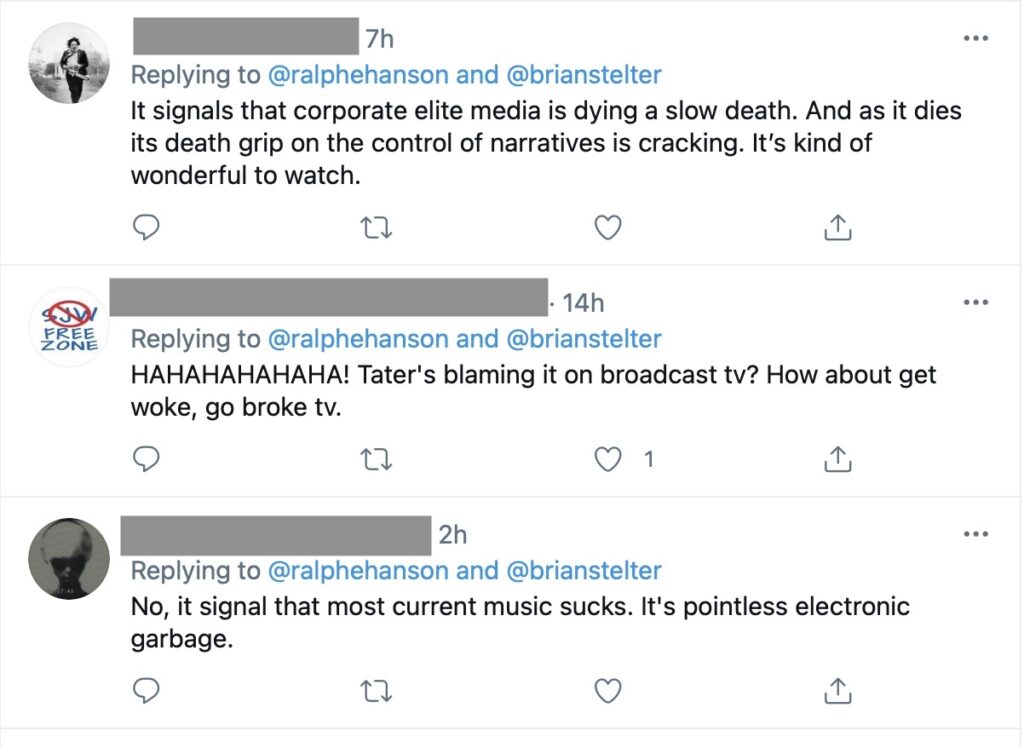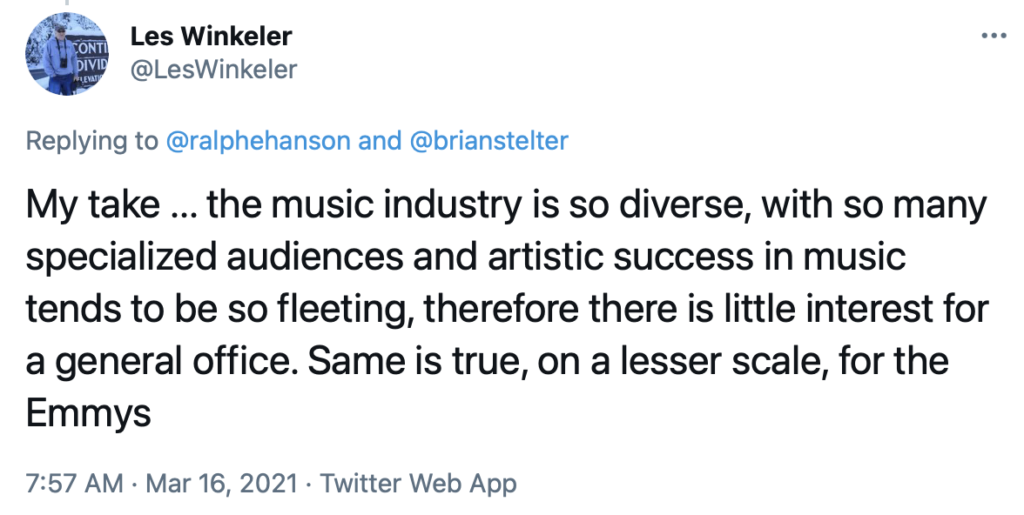Last evening I was reading reading CNN’s Brian Stelter’s nightly media news newsletter that had just shown up in my mailbox. The lead story was about how television habits have changed during the pandemic.
Stelter notes that one of the big casualties has been the audience for high-profile awards shows, whose ratings have dropped off the cliff recently. As an example, the Grammy’s, airing Sunday on CBS, had a record-low 8.8 million viewers, down 53% from last year’s pre-pandemic show.
Megan Thee Stallion & Cardi B at the 2021 Grammy Awards
(Please note, they will be performing an edited version of WAP. If you don’t know what that means, you might want to skip viewing this video.)
The article goes way beyond the reasons that the Grammy’s show might have tanked (No common pop culture; show featured artists that appeal to young people on a medium primarily consume by older people). Stelter quotes Brian Lowry:
The fallout from Covid-19 –- and the impact on these live events -– has hastened a host of problems. One obvious issue across the industry is fragmentation. Without the red carpet fashion and the unpredictability of live acceptance speeches in front of big audiences, why not just wait and watch the clips of anything interesting that happens after the fact?
“Even the Super Bowl wasn’t entirely immune to these forces, which leaves me wondering: To what extent is this huge dropoff not a one-time blip, but the new normal? If the latter, license fees for award shows are dramatically out of whack, and that will have a ripple effect on the organizations behind them, which rely on that TV revenue.”
It’s fascinating how people have reacted to this story on social media (I know, I know, “Never read the comments”).
Does the 58% drop in Grammy’s audience signal the end of broadcast TV as a broad-based mass medium? @brianstelter’s Reliable Sources newsletter examines the question. https://t.co/GNRaqxBLtG
— RalphIsNow@rhanson40@threads.net (@ralphehanson) March 16, 2021
After Stelter shared my Tweet, I got a fair amount of readership and response, including this rather thoughtful one from Joe Flint at the Wall Street Journal who accurately points out that Oprah got a huge audience a week ago with her interview with the disaffected Royals. Though I might point out that putting a top interviewer with guests who have enormous appeal to older viewers is bound to get an audience.
Yes, if we have the greatest TV interviewer of her generation bring in guests with global appeal, broadcast TV can still bring in an audience. But that's a pretty high bar to clear. https://t.co/NeRsYzQXnQ
— RalphIsNow@rhanson40@threads.net (@ralphehanson) March 16, 2021
And this is exactly the kind of debate that one would hope for on Twitter. (But that you so rarely get.) Here’s another reasonable response:
But there were also a number of responses that reminded me of how negative Twitter can be.

The fact that broadcast television is declining is inarguable. But someone tell Big Media they are dying. They are going through a period of transition, moving from legacy media like television to new modes such as streaming. But Disney, ViacomCBS and WarnerMedia are hardly dying. And don’t forget the new Big Media like Google and Apple.
The tweet calling Stelter “Tater” might be largely incomprehensible to people outside the right-wing media bubble. But “Tater,” along with Sean Hannity’s “Humpty Dumpty,”is a popular insult name used for earnest and wonky Stelter as a critique about his appearance.
Finally, there is the evergreeen “music sucks these day” tweet. I didn’t watch the show because I’m old the music on the show appeals to the young, but I will confess that I would have loved to have watched Brandi Carlile’s tribute to the late John Prine, who won a posthumous Roots Music Grammy for his last album, recor.
Brandi Carlile performing John Prine’s “I Remember Everything”

